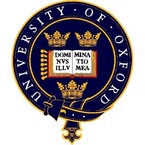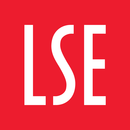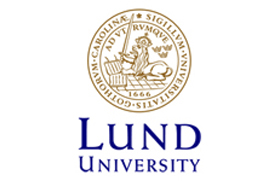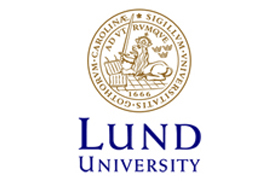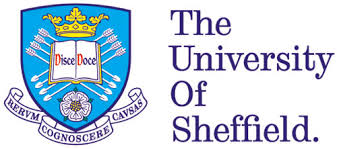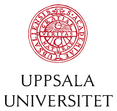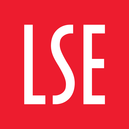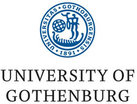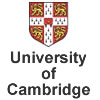International Advisory Board
The STANCE program has an International Advisory Board, consisting of top scholars within our field of inquiry.
Ben Ansell, Oxford University
|
Professor Ben Ansell received his doctorate from Harvard University with a study of the impact of politics on education spending, From the Ballot to the Blackboard, which won the Senator Charles A. Sumner Dissertation Prize. The dissertation was the basis for a book which won the 2011 William Riker prize for best book awarded by the Political Economy section of the American Political Science Association. Ben Ansell received a Master's Degree in History from Manchester University and a Master's Degree in Political Science from UC Berkeley. From 2006 to 2013 Ansell has taught Political Science at the University of Minnesota. In 2013, he joined the University of Oxford as Professor in Comparative Democratic Institutions at Nuffield College. His academic interests are the politics of education policy, the relationship between inequality and democracy, and the effects of asset price inflation on political preferences.
|
Barry Buzan, London School of Economics and Political Science
|
Barry Buzan is Professor Emeritus at the Department of International Relations at LSE. He received his PhD from LSE in 1973. His main research interests are within the area of international society, world history, and international security. Buzan's current research focus is on the English school approach to the study of international relations - involving theoretical work on the concepts international society, world society, pluralism, solidarism, institutions, and the application of these ideas to understanding the international system, both contemporary and historical. From 1988 to 2002 he was Project Director at the Copenhagen Peace Research Institute (COPRI).
|
Kristian Gerner, Lund University
|
Kristian Gerner is Professor Emeritus at the Department of History at Lund University. He was previously Professor of Eastern European History and Culture at Uppsala University. Gerner earned his doctorate in 1984 at Lund University with a Ph.D. thesis on Soviet–Central European relations in the postwar era. Gerner’s research has focused on 20th century Central and Eastern European history and cultural history. Recent publications include “Open Wounds? Trianon, the Holocaust, and the Hungarian Trauma”, in Collective Traumas: Memories of War and Conflict in 20th-Century Europe (Conny Mithander et al., eds., 2007) and “Building Civil Society and Democracy East of the Elbe: Problems and Prospects”, in Building Democracy and Civil Society East of the Elbe: Essays in Honour of Edmund Mokrzycki (Sven Eliaeson, ed., 2006).
|
Christer Gunnarsson, Lund University
|
Christer Gunnarsson is Professor in Economic History at the School of Economics and Management at Lund University. His research focus is on identifying the importance of institutions for success and failure with regard to economic performance over time. Special focus is laid upon the role of institutions in developing and emerging economies. How have growth enhancing or inhibiting institutions been devised and enforced in different historical contexts? The research has a focus on institutional arrangements structuring state-market relations and institutions enabling equality of opportunity with regard to access to productive resources. The growth inequality nexus is central in Gunnarsson's research and much work is given over to mapping of inequalities with respect to opportunities and rights and to a search for causal links between inequality, economic performance, and institutional development. His research interests also lie within agrarian history, development economics, economic growth and structural change.
|
John M. Hobson, University of Sheffield
|
Professor John Hobson received his PhD from the London School of Economics in 1991 and joined the Department of Politics at the University of Sheffield in 2004, where he is currently Professor of Politics and International Relations. Previously he taught at La Trobe University in Melbourne and at the University of Sydney. His main research interest concerns the area of inter-civilisational relations and everyday political economy in the context of globalisation, past and present. His work is principally involved in carrying forward the critique of Eurocentrism in World History/Historical Sociology, and International Relations.
|
Kristine Höglund, Uppsala University
|
Kristine Höglund is Professor at the Department of Peace and Conflict Research at Uppsala University. She received her doctorate from Uppsala University in 2004 with the dissertation "Violence in the Midst of Peace Negotiations: Cases from Guatemala, Northern Ireland, South Africa and Sri Lanka". Her main research focus is on the influence of violence on conflict resolution and democratisation in post-conflict contexts; peace negotiations and violence; third-party intervention; and also sport and reconciliation. Höglund also works with research related to the implementation and consolidation of peace agreements and other war endings and their linkages to democratisation and peacebuilding.
|
Cathie Jo Martin, Boston University
|
Cathie Jo Martin is a Professor of Political Science at Boston University and former chair of the Council for European Studies. She received her Ph.D. from the Massachusetts Institute of Technology in 1987. She has held fellowships at the Radcliffe Institute for Advanced Study, the Russell Sage Foundation, and the University of Copenhagen; in addition, she has received grants from the Robert Wood Johnson Foundation, the German Marshall Fund, the Danish Social Science Research Council, and the National Science Foundation. She holds a position of visiting professor of the Copenhagen Business School and serves on the strategic advisory board of the Danish National Institute for Social Science Research. Her most recent book investigates the origins of coordinated capitalism and the circumstances under which employers are persuaded to endorse social policies promoting economic productivity and social solidarity.
|
Iver Neumann, London School of Economics
|
Iver Neumann is Professor at the Department of International Relations at LSE. He joined the department in 2012 as the Montague Burton Professor of IR. He received his PhD in politics at Oxford University in 1992 and his PhD in social anthropology at Oslo University in 2009. Neumann has been research director at the Norwegian Institute of International Affairs and has previously been Professor in Russian Studies at Oslo University. His main research interests lie within diplomacy, scenario planning and Russian foreign policy. He also works with issues regarding International Relations theory, global governance, the historical sociology of the Eurasian steppe, and diplomacy.
|
Ann Towns, Gothenburg University
|
Ann Towns is Associate Professor in Political Science at the University of Gothenburg. She received her PhD in Political Science, with a minor in feminist studies, at the University of Minnesota in 2004. Towns was awarded a Marie Curie International Reintegration Grant from the European Commission for a post-doc at the University of Gothenburg. She has also worked as Assistant Professor in Political Science and International Relations at the University of Delaware and as Assistant Professor in Political Science at University West, Sweden. In 2013, she was awarded a Wallenberg Academy Fellowship by the Knut and Alice Wallenberg Foundation. Towns is associate editor of International Studies Quarterly and a member of the editorial boards of Cambridge Studies in Gender and Politics, International Studies Review, Politics and Internasjonal Politikk.
|
Ayse Zarakol, Cambridge University
|
Ayşe Zarakol is a University Lecturer in International Relations in the POLIS Department at the University of Cambridge and a Fellow at Emmanuel College. She holds a PhD in Political Science from the University of Wisconsin-Madison and a BA in Political Science and Classics from Middlebury College, USA. Before joining the University of Cambridge, she was an International Affairs Fellow with the Council on Foreign Relations in Washington, DC and an Assistant Professor of Politics at Washington and Lee University, USA.
|
Daniel Ziblatt, Harvard University
|
Daniel Ziblatt is Professor of Government at Harvard University, and served in 2014 as Interim Director of Harvard University's Minda De Gunzburg Center for European Studies. He received his PhD from University California-Berkeley in 2002. His research and teaching interests include democratization, state-building, comparative politics, and historical political economy, with a particular interest in European political development. He has been a DAAD Fellow in Berlin, an Alexander von Humboldt visiting fellow at the Max Planck Institute in Cologne and the University of Konstanz, Germany, and visiting professor at Sciences Po Paris (2014) and Ecole Normale Superieure, Paris (2009) and a Fellow at the Center for Advanced Study in the Behavioral Sciences at Stanford University.
|

